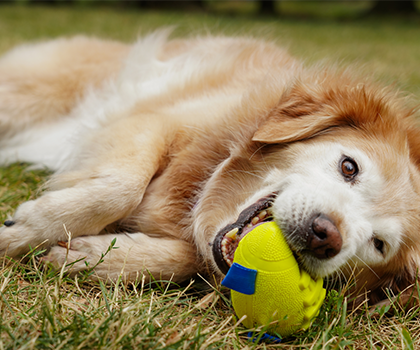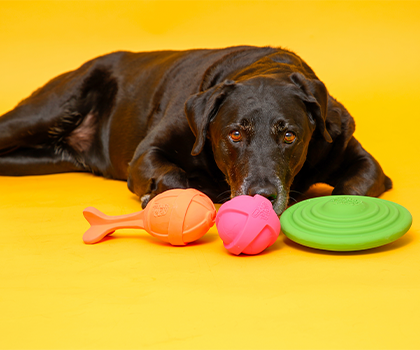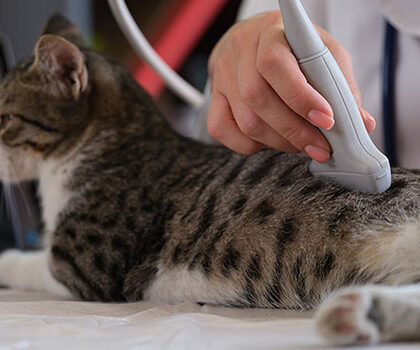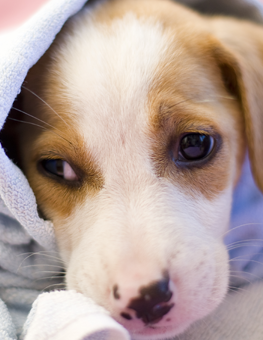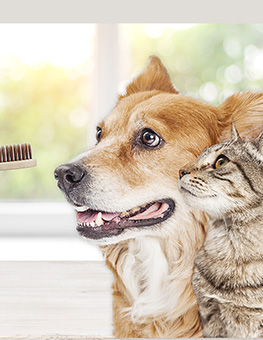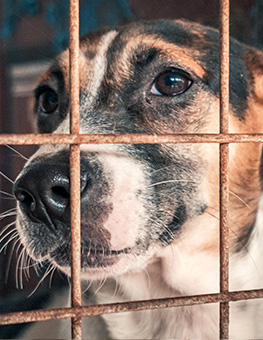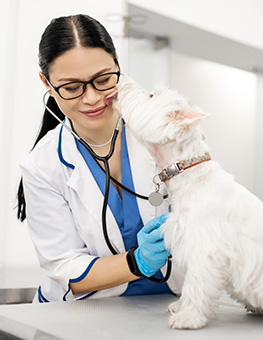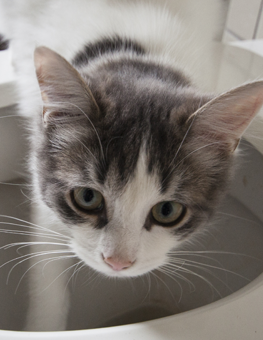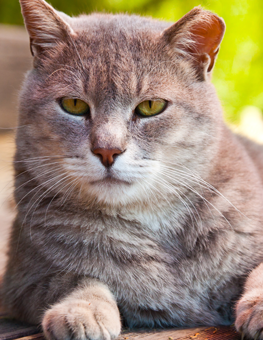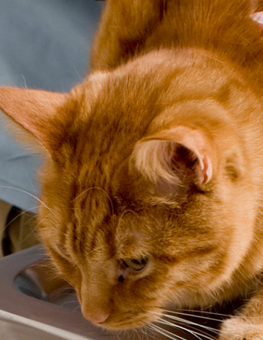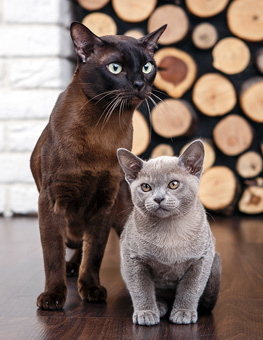Preventing Unwanted Urination Behaviors
Irregular urination patterns require different solutions.
Often, a house-trained dog will urinate unexpectedly in the home. Dogs urinate for many reasons besides the simple need for elimination, including submissive peeing, territorial marking, and in response to extreme excitement. While this behavior is instinctive, there are several training methods you can use to curb the occurrence.
Submissive Urination
In a pack, dogs are expected to show the alpha that they accept their role as the leader. To avoid confrontation, dogs will roll onto their backs and urinate. This is a typical behavior puppy’s exhibit, which is usually outgrown before they enter adulthood. But some dogs remain timid and their habit of submissive urination can become a problem in the home.
Signs of Submissive Urination
If your dog pees when any of the below take place, there is a good probability it is due to submissive urination:
- When they are being scolded
- When they are being greeted or approached
- When there's a disturbance such as a loud noise
- While making submissive postures, such as crouching, tail tucking, or rolling over and exposing their belly
Why dogs urinate in submission
Dogs that behave in this manner are usually anxious, shy, skittish or have a history of mistreatment. A dog that is unclear of the rules and how they should respond to cues will be insecure and resort to submissive peeing as a way to avoid punishment and appease whomever they perceive to be the leader.
How you can help stop submissive urination
Begin building up your dog’s confidence with these steps:
- Teach them commands using positive reinforcement training
- Keep their routine and environment as consistent and calm as possible
- Gradually expose them to new people and situations and try to ensure that their new experiences are positive and happy
- Keep greetings low key
- Encourage and reward confident postures such as sitting or standing
- Avoid approaching them with postures that they may interpret as dominant or confrontational such as direct eye contact; look at their back or tail instead. Get down on their level by bending at the knees rather than leaning over from the waist. Ask others to approach them in the same way. Pet them under the chin rather than the top of their head. Approach them from the side, rather than head on, and/or present the side of your body to them.
- Don't punish or scold them for submissive urination
- Most importantly, be patient
Territorial marking
As you probably know, dogs urinate instinctively to mark their territory. This is different from submissive peeing because it does not necessarily reflect a lack of confidence. Often, dogs feel the need to protect their domain.
This often occurs when your dog feels challenged at home. For example, a new baby in the house can take attention away from your dog, triggering aberrant behavior. To re-establish his place in the household, he may urinate on toys, grocery bags, or anything else that enters the house. A new pet can also elicit a similar reaction and your dog wants to make sure this new family member knows who is boss.
Spay or neuter first
Spay or neuter your dog as soon as possible. The longer a sexually mature dog goes before spaying or neutering, the more difficult it will be to train them not to mark in the house. Spaying or neutering your dog should greatly reduce or stop urine-marking .
If your dog has been marking for a long time, a habit may already be established. Because it has become a learned behavior, spaying or neutering alone won't solve the problem. Use supplementary training techniques to help modify your dog's marking behavior.
Training tips of territorial urine marking
- Clean areas where your dog marked thoroughly to eliminate urine odor
- Make previously soiled areas inaccessible
- Keep objects likely to cause marking out of reach
- Resolve any conflicts between competing animals in your home
- Restrict your dog's access to doors and windows so they can't observe animals outside
- If your pet is marking in response to a new resident in your home, have the individual make friends with your dog through feeding, grooming, and playing . If you have a new baby, make sure good things happen to your dog when the baby is around.
- Watch your dog when they are indoors for signs that they are thinking about urinating. When they begin to urinate, interrupt them with a loud noise and take them outside. If they urinate outside, praise them and give them a treat.
- When you're unable to watch them, confine your dog to a crate, where they are less likely to soil
Never punish your dog after they’ve marked. Punishment administered after the event is ineffective because they won't associate the punishment with something they may have done hours ago, leading to confusion and possibly fear.
Excitement Peeing
Your dog also may occasionally pee unexpectedly when he gets excited. This almost always occurs when someone – either you, a family member or a visitor – arrives at your home. Your dog is so happy and excited to see this person that he is completely unaware of his behavior.
While some dogs outgrow this behavior, others need help from their owners.
The best solution to handle excitement peeing is to keep greeting low-key and avoid eye contact. If your dog is excited, wait a few minutes for the dog to calm down before acknowledging him. This should help curb his unabashed enthusiasm and involuntary peeing. Again, punishment is not an effective method.



